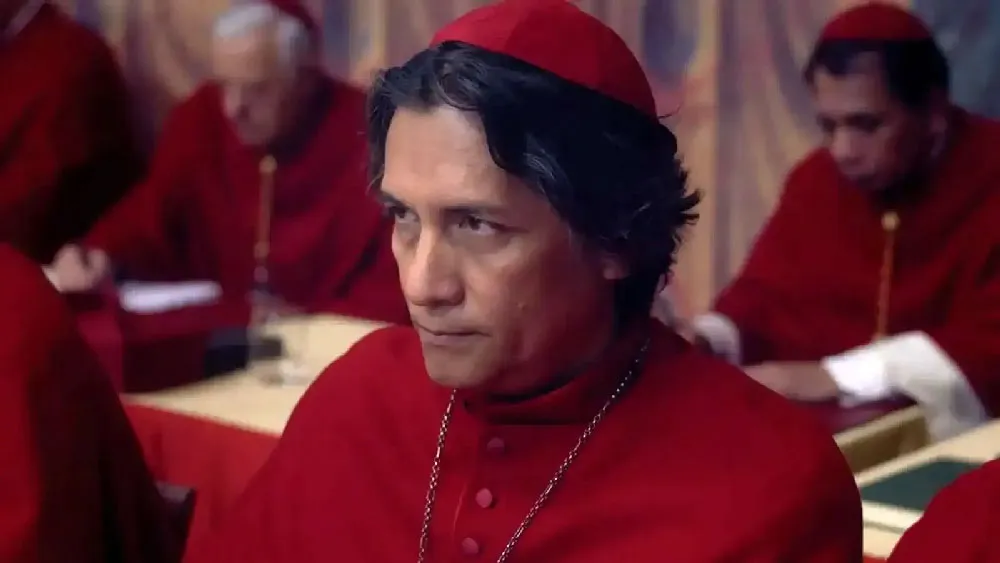July 21, 2011
Anti Gay Groups to New Yorkers: Their Rights Will Trample Yours
Kilian Melloy READ TIME: 4 MIN.
Well-funded national groups that pursue freedom of religion and free speech cases already are soliciting New Yorkers who say their civil rights will be trampled by the new right of gay couples to marry, opening another front in the ongoing contest over same-sex marriage.
It may be a town clerk who chooses to resign rather than issue licenses to gay couples against their own beliefs, or a disc jockey who refuses to play music at a gay couple's reception and is sued.
"It's a very well-founded concern," said Holly Carmichael of the Alliance Defense Fund, an Arizona-based firm that presses faith-based cases in court nationwide. "It conflicts with fundamental American religious freedoms."
New York became the sixth and largest state to allow gay marriage last month, providing fresh energy to the national drive for same-sex weddings. The law takes effect at 12:01 a.m. Sunday, and couples already have planned ceremonies across the state.
The state constitution is silent on marriage, which eliminates the best chance of a temporary restraining order blocking gay weddings from happening while the law's constitutionality is tested. That leaves civil action as the most likely route for opponents. For that, a New Yorker will have to show personal or professional harm because they followed their beliefs - and exercised their own civil rights - by refusing to serve gay couples.
Some opponents, including the Alliance Defense Fund, argue the gay marriage law conflicts with New York's own Human Rights Law and Domestic Relations Law, which protect workers such as town clerks from acting in conflict with their "sincerely held religious observance or practice."
The group is providing a letter for clerks to avoid issuing gay marriage licenses, citing executive law and a 1996 court ruling that it says protects them. The Alliance Defense Fund also is recruiting potentially aggrieved parties.
Alicia Ouelette, a professor at Albany Law School, said the gay marriage statute doesn't weaken existing anti-discrimination laws.
"I don't think there is any substance to those challenges, but anyone can bring a lawsuit," she said. "There is just not a good legal argument that you have the right to discriminate."
Clifton McLaughlin, a Christian Jamaican immigrant who provides music for wedding receptions through his Bronx company, said he won't serve same-sex couples because he opposes it on religious grounds, even if it means his business gets hurt or he gets sued.
"It's not about discrimination," he said. "It's a right we have in this country, the Constitution and freedom of speech. One thing about America, we're blessed. But government is not above the Bible when it comes to us standing up for God."
National and statewide groups including the National Black Church Initiative promise a relentless legal and political effort to protect what they see as religious and individual freedom of the nearly half of New Yorkers that polls show oppose gay marriage.
"I think it's highly likely there will be challenges based on the religious exemptions," said Dennis Poust of the state Catholic Conference.
Legal action has been used sparingly in the five other states with gay marriage laws - Connecticut, Iowa, Massachusetts, New Hampshire and Vermont. It's also legal in Washington, D.C.
In California, voters in 2008 banned gay marriage in a still-contested referendum called Proposition 8. A federal court is expected to soon rule on the proposition's constitutionality based on a court challenge to overturn the measure. And in Vermont, a gay New York couple on Tuesday announced a suit against an inn because they claim the proprietor refused to provide them space for their wedding reception. The American Civil Liberties Union is handling the case based on a state fair housing law.
Challenges may be particularly difficult in New York, which doesn't have an easy way for voters to bring a measure. New York lawmakers also learned from other states in crafting the legislation.
The legal history of the gay marriage effort in New York since 2006 shows opponents who won the first two rounds may have inadvertently helped strengthen the state's new law.
A 2006 lawsuit seeking to include gay couples in existing marriage laws lost in the Court of Appeals, the state's highest court, which ruled the state constitution didn't address marriage and the issue was up to the Legislature. Opponents argued then that the case shouldn't be in court, but was rightfully a topic for the Legislature.
So the Legislature took it up.
It made it to a vote in 2009, where its defeat dealt a stinging setback to the national effort. This year, lawmakers passed a bill with far more religious protections, heading off the most common and powerful constitutional challenges by religious groups.
"I think the compromise was sort of political genius in that sense," said Ouellette, of Albany Law School. "It's the broadest religious exemption in the nation, and there are people who say it goes too far, that it actually allows discrimination."
Republican senators, including some who voted for the measure, negotiated an "inseparability" clause into the law, meaning if gay rights supporters tried to weaken any part of the religious protections, the entire law would be voided. Conversely, that could provide an opportunity for religious organizations to argue the protections for clergy and affiliated services don't go far enough.
Kilian Melloy serves as EDGE Media Network's Associate Arts Editor and Staff Contributor. His professional memberships include the National Lesbian & Gay Journalists Association, the Boston Online Film Critics Association, The Gay and Lesbian Entertainment Critics Association, and the Boston Theater Critics Association's Elliot Norton Awards Committee.


